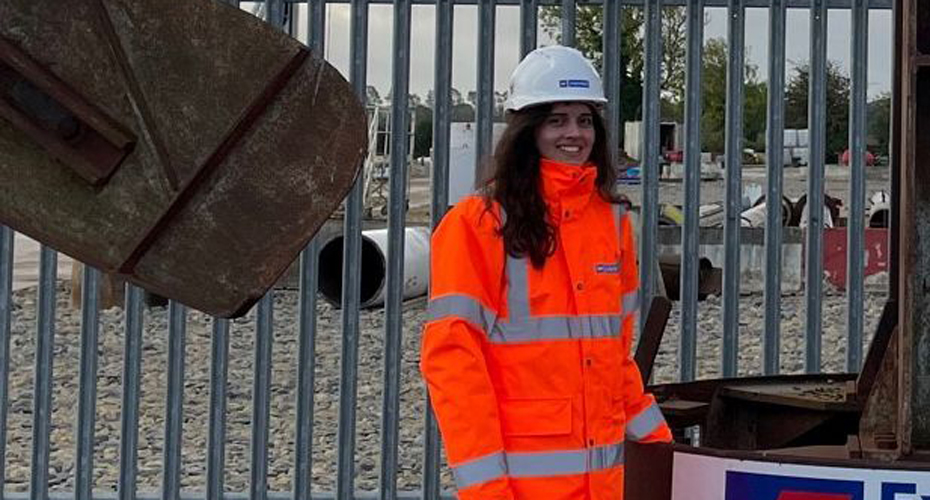Our apprentices in action: degree apprenticeship case studies
At the University of Exeter, our diverse range of degree apprenticeship programmes stands as a testament to our commitment to innovative education. We take pride in fostering a thriving community of over 3,000 apprentices, actively contributing to sectors such as business, engineering, data, and healthcare.
Curious to discover what it’s really like to study a degree apprenticeship with us? Our apprentices share their firsthand insights and experiences on our programmes.
We are proud to actively participate in the annual National Apprenticeship Week. Our dynamic apprentices contribute through our Instagram ExeterUniLife takeovers, with case studies, videos and also participate in events. Join us on our social media where we celebrate our fantastic apprentices and employer partnerships feeds.
Many of our apprentices have gone on to win awards for the outstanding impact they have on their sector including the 2019 IT Apprentice of the Year (the British Computer Society (BCS) IT Industry Awards) and the Multicultural Apprenticeship Awards.
Contact us View our programmes Follow Us on LinkedIn


Molly
Civil Engineering Degree Apprentice
Studying at the University of Exeter has been a very positive experience. The lecturers have been knowledgeable and helpful, with the programme leaders going out of their way to provide support and guidance when required. Also, the ability to get involved with sports clubs and societies are a bonus, giving the real university experience!


Allaina
Digital and Technology Solutions Degree Apprentice
Doing the degree apprenticeship fast tracked my career expeditiously. I have so much more industry knowledge and just a general understanding of the industry climate than if I hadn’t completed the apprenticeship. I am now working as an AI Engineer in IBM Client Engineering. I have been able to learn from industry experts and network with individuals from all across the organisation.


Kate
Chartered Manager Degree Apprentice
Everyone at the university has been so friendly and supportive; from the librarians who come back to your query within minutes, to the lecturers who support and guide you. If you’ve ever visited the University of Exeter, you’ll know their campus is beautiful, so what better place to graduate.
Maryam, Digital and Technology Solutions Apprentice working as a Global Data Analyst at Bloomberg
Shumailla, Senior Leader Apprentice working as Head of Equality, Diversity and Inclusion at Harrow Council
Learn more about how her learning on the Senior Leader Apprenticeship has helped drive positive change.
Katie, Digital and Technology Solutions Apprentice working as Security Project Manager at IBM
Learn more about how Katie’s applied her academic knowledge to her day-to-day role.
Amit, Senior Leader Apprentice working as Executive Director, and Global Head for Securities Operations Controls at J P Morgan
Learn about Amit’s career progression since studying the Senior Leadership Apprenticeship.


Alejandra
Diagnostic Radiographer Degree Apprentice
Studying a degree apprenticeship has really helped me change my career path into something more aligned with my values. Every day is different and brings an opportunity to learn something new. Before the programme, I had been working as a Health Care Assistant for around two years. After I had decided that nursing wasn’t for me but wanted to stay in healthcare, my employer encouraged me to apply for the Diagnostic Radiographer Degree Apprenticeship programme.


Ryan
Civil Engineering Degree Apprentice
After finishing my A-levels and starting my career, the idea of studying at a Russell Group university six years later seemed impossible. However, with the degree apprenticeship, what once seemed impossible became a reality. Looking back on my experience at the University of Exeter, I have fond memories that will stay with me forever.


Jon
Senior Leader (Healthcare) Degree Apprentice
Studying a degree apprenticeship whilst working full-time certainly isn’t easy but I think it’s about getting into a rhythm and being systematic with your workload. I really love the application of the knowledge in the degree apprenticeship, so I can take my webinar or lecture and apply it the next day or week in the workplace.



